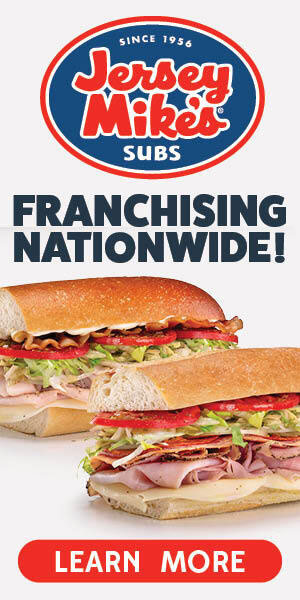Take A Break: Meal and Rest Break Court Rulings Demand Caution From Franchise Employers
Almost five years ago, in April 2006, nearly 59,000 employees obtained class certification in a lawsuit claiming that Brinker Restaurant Group violated California labor laws by failing to ensure that its non-exempt employees took meal and rest breaks. In July of 2008, the appeals court vacated the class certification based upon a finding that employers need not ensure that meal and rest breaks are taken. The California Supreme Court then vacated the decision and granted review on October 22, 2008. Much to the chagrin of California employers and employees seeking clarity on the issue, the Supreme Court has yet to issue its ruling in Brinker Restaurant Group v. Superior Court.
The Supreme Court's over two year delay in issuing a ruling in Brinker has allowed the Second Appellate District to weigh in as to whether California employers must simply provide non-exempt employees with their statutory meal and rest breaks or if they must take the added step of ensuring that the employees take them. Although uncertainty will remain until the Supreme Court rules in Brinker, the Second Appellate District's ruling in Hernandez v Chipotle Mexican Grill provides hope that the Supreme Court will side with employers in finding that meal and rest breaks need only be provided to employees.
In Chipotle, the appellate court upheld the trial court's denial of class certification to employees who claimed they had not received their breaks. Both the trial and appellate courts denied the class certification and in so doing utilized the less onerous provide meal and rest breaks standard. The courts reasoned that if employers must merely provide breaks then an inquiry as to why certain employees did not take them must be taken. The courts found that having to inquire why certain employees did not take advantage of the breaks provided was too individualized for class treatment.
The Chipotle court's reasoning that employers need only provide breaks but need not mandate they be taken, while certainly a positive sign for employers, should not be viewed as presaging how the California Supreme Court will rule on the issue. Rather, California employers would be keen to continue to presume the worst given the fluid nature and ambiguity surrounding meal and rest break court rulings. Case in point, the case of Brinkley v. Public Storage in which the appeals court back in 2008 reasoned that meal and rest breaks need only be provided has since been appealed to the California Supreme Court. Brinkleyis now a companion case to Brinker. Furthermore, despite the appeals court ruling in Chipotle, employers should not overlook the California Supreme Court's history of rulings favoring employees. It was only four years ago in Murphy v. Kenneth Cole that the court held that the hour owed for missed breaks is a wage and not a penalty, meaning that the statute of limitations for a missed break claim could go back four years instead of one.
Not to be overlooked is the fact the California Supreme Court's persistent delays in ruling on Brinker could further expose employers to liability for missed breaks that employers failed to ensure were taken while Brinker is pending. To reduce liability risk employers should ensure that non-exempt employees actually take their breaks and that time cards and time sheets confirming the breaks are maintained. Employers should also communicate the policy that breaks must be taken with their employees and ensure that managers and supervisors are vigilant in monitoring to ensure employees take their breaks.
Waiting for a ruling on Brinker that clarifies the meal and rest break issue may as the adage says be the "hardest part" but if employers ignore favorable rulings such as Chipotle and continue to prepare for the worst it will not be the "costliest part."
About Grace Horoupian
Grace Horoupian is a partner in the Irvine, Calif. office of employment law firm Fisher & Phillips LLP (www.laborlawyers.com). Her practice is focused on representing employers in a variety of employment cases, including claims for civil rights violations, harassment, discrimination, retaliation, wrongful termination, wage and hour claims, ADA and ADEA violations, unfair business practices, misappropriation of trade secrets and class action disputes. She also provides preventive counseling and frequently presents seminars and workshops on employment issues to executives, supervisor, managers and human resources professionals. She can be reached at 949-851-2424 or [email protected].
Share this Feature
Recommended Reading:
| ADVERTISE | SPONSORED CONTENT |
FRANCHISE TOPICS
- Multi-Unit Franchising
- Get Started in Franchising
- Franchise Growth
- Franchise Operations
- Open New Units
- Franchise Leadership
- Franchise Marketing
- Technology
- Franchise Law
- Franchise Awards
- Franchise Rankings
- Franchise Trends
- Franchise Development
- Featured Franchise Stories
| ADVERTISE | SPONSORED CONTENT |

$175,000
$500,000





 The multi-unit franchise opportunities listed above are not related to or endorsed by Multi-Unit Franchisee or Franchise Update Media Group. We are not engaged in, supporting, or endorsing any specific franchise, business opportunity, company or individual. No statement in this site is to be construed as a recommendation. We encourage prospective franchise buyers to perform extensive due diligence when considering a franchise opportunity.
The multi-unit franchise opportunities listed above are not related to or endorsed by Multi-Unit Franchisee or Franchise Update Media Group. We are not engaged in, supporting, or endorsing any specific franchise, business opportunity, company or individual. No statement in this site is to be construed as a recommendation. We encourage prospective franchise buyers to perform extensive due diligence when considering a franchise opportunity.